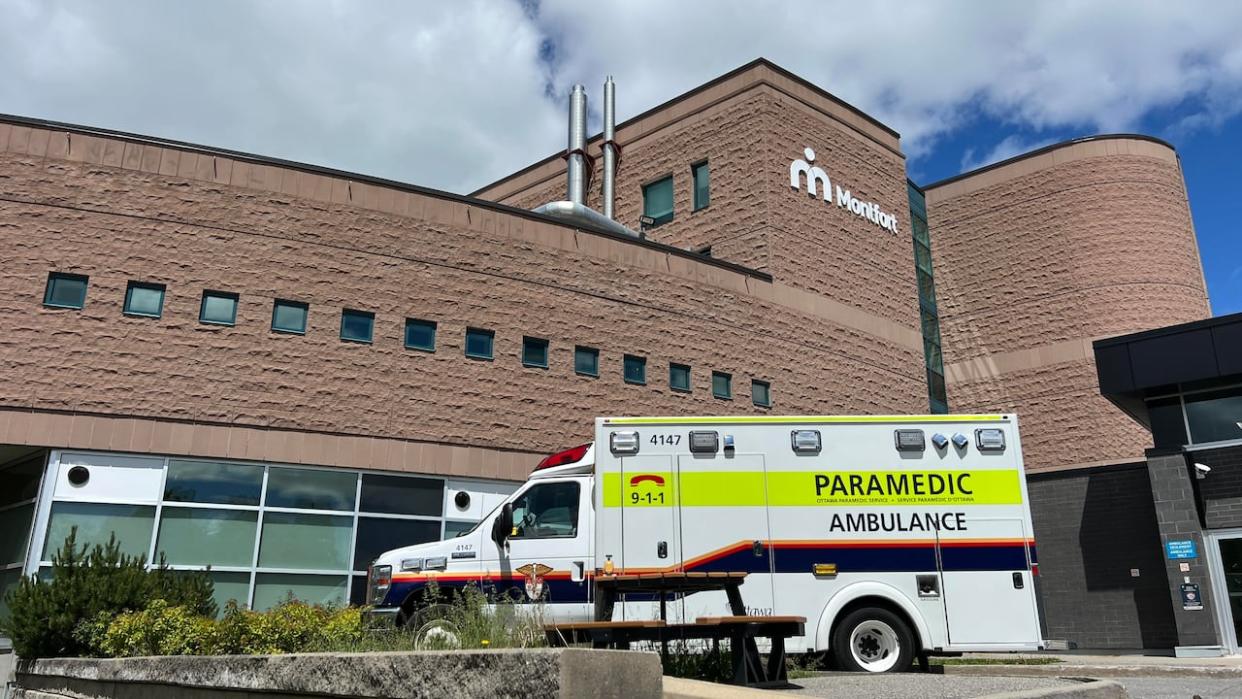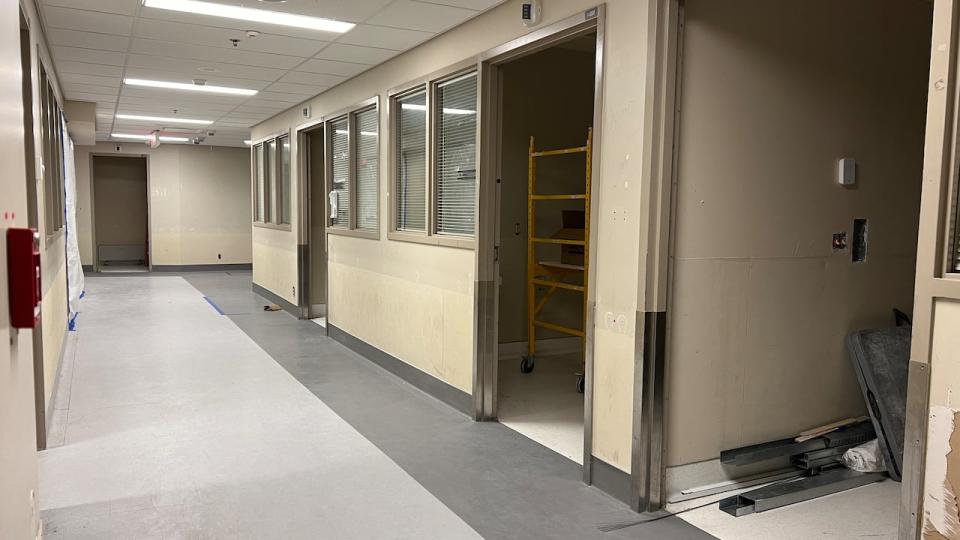New mental health crisis zone coming to Montfort Hospital

Ottawa's Montfort Hospital is building a specialized mental health crisis zone at its emergency department to better treat patients dealing with psychiatric emergencies and alleviate the strain on the current system.
The Montreal Road hospital gets more than 50,000 annual visits to the ER, eight per cent of which are related to mental health, according to CEO and president Dominic Giroux.
Compared to other Ontario hospitals, the number of psychiatric patients coming to Montfort is "about twice the provincial average," Giroux told CBC Radio's All In A Day last week.
Those who need mental health care will be brought to this new zone and be provided with a specialized mental health team, Giroux said.
The zone will include a total of roughly six conventional and sensory rooms, spaces designed to help calm patients experiencing mental health crises.
Sensory rooms often feature relaxing music, lighting, textures, aromas and other elements to help reduce agitation and anxiety.
The zone will also include a quiet waiting area for patients, a nurses' station and security personnel. It will be a "more comfortable" space for patients, Giroux said, and the mental health team will be able to quickly provide any needed care.
"We want [patients] to be in a soothing environment," he said.

The hospital reports more than 50,000 annual visits to its ER, eight per cent of which are related to mental health. It's building this dedicated space to better treat those patients. ( Frédéric Pepin/Radio-Canada)
Fundraising campaign underway
On Friday, the Montfort Hospital Foundation launched a fundraising campaign to cover the project's costs.
Giroux said the foundation is aiming to raise the full $2 million from the community over the next 18 to 24 months.
"Every dollar invested in the project needs to be raised locally. There's no government funding associated with the initiative," he said.
Raman Chauhan, an Ottawa resident for more than 40 years, and his wife donated $50,000 in honour of their son Sanjeev, who suffered from post-traumatic stress disorder while serving in the Canadian Armed Forces and later died by suicide.
"We take so many things for granted that we should be thankful for," Chauhan told reporters at Friday's press conference.
"We are behind the initiative. We'd like it to grow. And the need for mental health support is huge."


